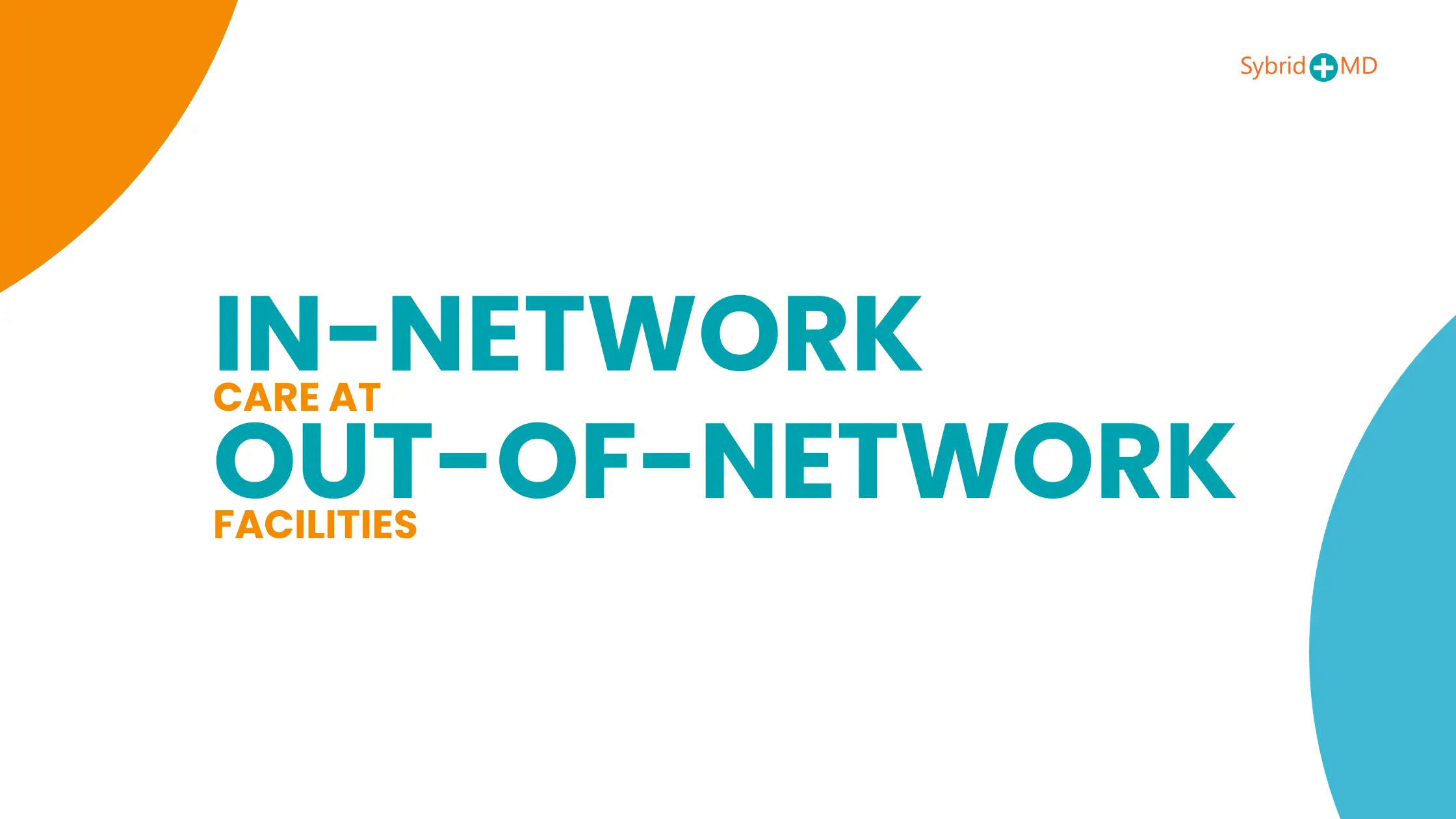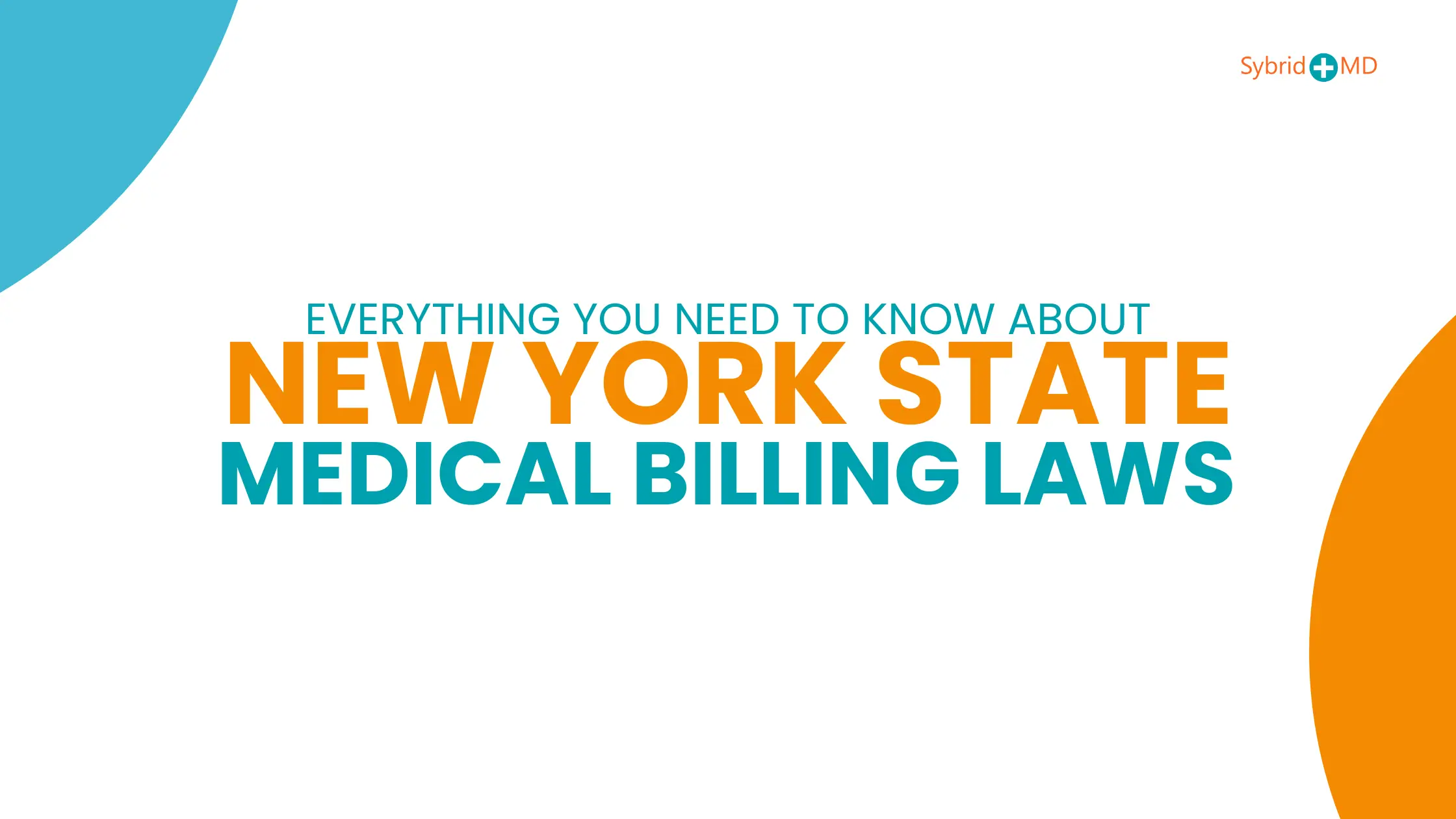It is important for healthcare providers, medical billing companies, and even patients to know about the New York State Medical Billing Laws so that the proper steps can be taken. With the compliance requirements, regulations, and laws only increasing in scope, you could find yourself in a hole against the basic patient protections keeping you out of legal troubles with your patients or, for that matter, this minefield of complex rules be left high and dry that could set you back in a big way financially.
In NYS, stringent provisions were enacted to ensure the transparency and honesty of the medical billing practices. Some key issues addressed by these laws include protections from surprise billing, timely submission of claims, resolution processes for billing disputes, and requirements for patient consent.
It explains what the patient is owed, and it regulates healthcare providers and insurance companies voicing their opinions on both sides of legal/ethical incentives. And yet, whatever your role, the proper understanding of New York medical billing regulations is essential whether you fall on the side of healthcare providers and patients or part of the claims management and billing industry.
In this article, we’ll highlight all the major laws to know about — as well as some recent shifts in law and offer solutions to the most common billing challenges. Knowing these essential laws, you will bill properly, avoid disputes, and remain part of a transparent healthcare system in NYS.
What Are New York State Medical Billing Laws
New York has been a national leader in protecting patients against surprise out-of-network medical bills. However, this protection began with preventive lunchtime (H.R. 5823) in-country law (H.R. 5823) within the New York economic services regulation, which, from the introduction, became incorporated. That is because some New York residents got extra protection from surprise medical bills under the Hope No More Surprise Medical Bills Act when it took effect on Jan. 1, 2022.
Providers and facilities provide New York state medical billing laws guidelines most of the time Healthcare Providers must provide an estimate of the total charges of the procedure(s) patients cannot bill (or “balance-bill”) patients for more than the in-network co-payment, co-insurance or deductible when patients receive surprise bills unplanned evaluations or consultations provided by out-of-network hospitals, physicians/other providers. It meets the substantive requirements for all types of out-of-network claims and also applies the same type of in-network cost sharing.
So, too must healthcare providers and facilities inform consumers about New York state medical-billing laws, as well as individuals’ rights under the new law, by posting a one-page disclosure notice in conspicuous locations around the facility, including its admission areas, on any website through which it provides or intends to provide telehealth services or service packages. This notice must also be given to the consumer when pursuing payment, including from a provider by the individual or his/her health plan. Paper copies of the disclosure notice will also be sent to consumers each time a health plan issues an explanation of benefits (EOB), including information about claims connected to surprise medical bills.
Protection Against Surprise Medical Bills
After a car accident or a sudden illness, most medical debts arise. Consumers generally do not have the foresight or information to determine what medical treatment they will get before they receive emergency services, making that comparison shopping, were they to attempt it, either impossible or futile. That is, there was a reasonable question of whether you received the treatment, whether there was something wrong with that billing amount, and/or whether insurance didn’t cover part or all of the process, but arguably, it has already been paid off at least in part.
Surprise medical billing when a patient accidentally obtains treatment from an out-of-network provider or facility (i.e., one that has not negotiated reimbursement rates with your insurance) and, consequently, you’re slammed with a bill is egregious. Your health insurer directly pays the out-of-network provider, and your insurance may not cover all of that expense, which means you’ll have to pay (the rest) what they don’t cover. It is called balance billing. This could be for something like a service that does anesthesiology or a laboratory test.” So you aren’t expected to be informed that the provider or facility is out of network before you’re billed.
In-Network Care at Out-of-Network Facilities

But if you were taken to a nearby emergency room more capable of treating your ailment, it is pretty much a certainty that in which case your insurance will cover treatment as if you’d gone to an out-of-network benefit. The rule applies to insurers under the Affordable Care Act in all states, as they must treat out-of-network emergency care as though it had been covered at the in-network level that’s no higher deductible or coinsurance.
But before that 2022 date, the good news had been that the hospital and the ER doctors nonetheless still couldn’t balance bill you at any difference between what they billed and what your insurance paid (less all of your deductible or coinsurance amounts). But that was the case for health plans for years beginning on or after Jan. 1, 2022. So, what are the new federal rules? They prevent balance billing during emergencies and when a patient visits an in-network facility but obtains treatment from one or more treatment providers who are outside that person’s insurance network.
And if no in-network providers are available where you are, then they should be paid by your insurance for their treatment as though it would have been an in-network provider though the out-of-pocket costs will be treated (and priced) according to what would normally have happened.
That is, you become ill when traveling, but are out of your health plan’s network. Keep in mind that most plans would require an emergency for this to happen. Policy Unless the trip is an emergency; you will almost never be able to get in-network coverage when traveling if there isn’t a provider network in place where your plan is.
Or perhaps you’re still in the normal operating zone for your health plan, but there’s not an endocrinologist within 200 miles and within a network of admitted practitioners. Either way, if you telephone the health a plan before receiving the care and explain that (in situations that aren’t emergencies although again this should almost always be done this way) your health plan is more likely to cover out-of-network care at an in-network rate.
Dispute Resolution Process
Surprise or unexpected medical bills continue to increase, and unfair billing practices are on the rise. Medical bills are 80% more likely to be wrong. That makes it imperative to know whether your bill is soundly and fairly constituted before you pay it.
If you are uninsured, healthcare providers and facilities must give you a good faith estimate of the cost before they provide you with care, and that requirement started at the beginning of 2022.
You get your bill, and you find out that unexpectedly and contrary to what has been and what had been part of the calculation, you were charged $400 or more. New practice allows you to present an independent third party, known as a dispute resolution entity, with your case for review and payment determination. Patient-provider dispute resolution: “Patient-provider dispute resolution” is the process in which a patient and their health care provider try to resolve a dispute regarding a medical bill or charges.
That unit will review your good faith estimate of anticipated charges, your bill, and information submitted by your provider or facility and will rule on whether you should pay the amount on your good faith estimate, the billed charge, or some other sum. So, in this article, we will bring you some pointers regarding the topic that will come in handy for you in how to dispute a medical bill.
What is the Surprise Billing Law in NY
As an initial comment, New York’s Surprise Billing Law already exists to protect patients from unnecessary billing when services are provided from out-of-network facilities. It protects consumers from being saddled with bills for the kind of care they had little chance of avoiding if, for instance, they are getting emergency treatment or out-of-network care over which they may have had no control. Its main provision shields patients who come for emergency treatment against surprise out-of-network bills.
That means insurance companies must cover emergency services at in-network rates, even if the provider is out-of-network, which means patients don’t pay extra. It also protects patients who may not remember they are being treated by out-of-network providers at in-network hospitals or facilities. For example, a patient treated by an out-of-network anesthesiologist for a procedure performed at an in-network facility will not be forced to pay a higher out-of-pocket price. The service would have to be governed by in-network rates.
In addition, the law prohibits out-of-network providers from balance billing patients when a provider charges the patient for the difference between what an insurer pays and the full fee. Rather, any dispute is resolved immediately between the provider and the insurer through an independent dispute resolution system that takes the patient out of the process of finding the answer. This broad law is meant to ensure consumers don’t get hit with surprise, large medical bills.
Emergency Services Protection
If you have an emergency medical condition and are treated by an out-of-network provider or hospital, you can be billed only up to the maximum your plan would pay for the same service from an in-network provider (such as copayments, coinsurance and deductibles). You cannot be balance billed for these emergency services. That includes services you might receive after you’re stabilized unless you give written consent and waive your rights against being balance billed for those post-stabilization services. You cannot provide written consent and waiver of your balance billing protections for post-stabilization care if your insurance ID card reads “fully insured coverage.”
Because certain providers at an in-network hospital or ambulatory surgical center may be out-of-network when you get services there. In such cases, the only thing those providers can bill you for is whatever your plan’s in-network cost-share amount ends up being. Emergency med: Anesthesia: Path: Radiology: Lab: Neonatology: Assistant surgeon: Hospitalist: Intensivist. (This means they can’t balance bill you and you may be able to avoid waiving your protection against balance billing.)
If you receive other kinds of services at these in-network facilities, out-of-network providers can’t balance bill you unless you provide written consent and waive your protections. The same applies when the insurance identification card you provide your health care provider reads “fully insured coverage”; you cannot cancel your protections for those other services in the case of a surprise bill. You get a surprise bill while at an in-network hospital or an ambulatory surgical facility, and a participating physician isn’t available, a non-participating physician provides services without your knowledge, or you receive unexpected medical services.
If your insurance ID card actually reads “fully insured coverage” on the first line, here are potential surprise bills: Your in-network doctor refers you to an out-of-network provider without your knowledge (and that includes lab and pathology services). Those providers also are not able to balance bill you, and they might not even require you to waive your protection against receiving balance bills. This billing protection applies to your entire balance only if you sign something (which you’ll find on the Department of Financial Services website).
Out-of-Network Providers in In-Network Facilities
The Surprise Billing Law (Section 603 of the federal Consolidated Appropriations Act) protects patients from surprise bills when they receive out-of-network care from a clinical provider at an in-network facility. That scenario often occurs when a patient gets care at an in-network hospital or medical facility but is treated by out-of-network specialists for certain services, anesthesiology, pathology, or radiology, for example. Without this protection, the patient could receive a bill for the difference between what the insurance company pays and what the out-of-network provider bills, which can be a large amount.
Understanding medical billing time limits by state is equally important for patients and providers to navigate the financial complexities of surprise bills and ensure compliance with regulations like the Surprise Billing Law.
But the law protects people against these surprise bills. If a rabid patient receives treatment at an in-network facility and an out-of-network provider is involved, the insurance company must then pay for such services at in-network rates. This would help to ensure that patients would see the same out-of-pocket costs as they would if, in fact, the services were performed by an in-network provider. This (very) important provision allows customers to (more) effectively cap this financial shock that they have as close as no control over, as they require medical treatment in an immediate state (say a visit to the emergency room), or they do not know if their healthcare provider is even in-network with their insurance provider. Patients should be able to focus on their health without the fear of surprise medical bills, making understanding your insurance plan crucial.

